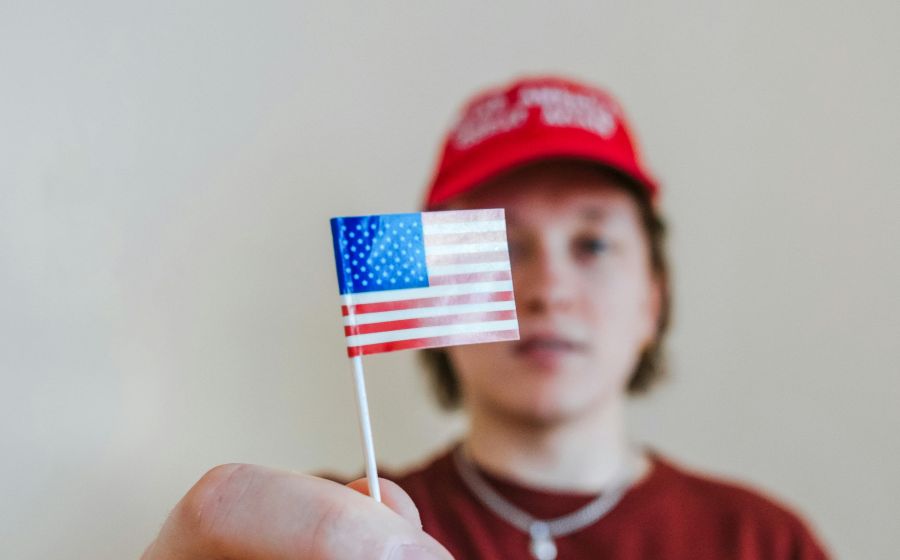
In the ever-evolving landscape of American political discourse, the term “Blue MAGA” has surfaced as a controversial and somewhat satirical concept. Originating as a play on Donald Trump’s “Make America Great Again” (MAGA) slogan, “Blue MAGA” is used to describe a faction within the Democratic Party that exhibits fervent loyalty and a cult-like following akin to Trump’s supporters. This term, however, does not have an official status and is often used pejoratively by critics within the liberal and progressive spheres to highlight perceived shortcomings and contradictions in the Democratic establishment.
Origins of Blue MAGA
The phrase “Blue MAGA” stems from the visual symbolism of blue hats emblazoned with the slogan “Made America Great Already,” mimicking the iconic red MAGA hats of Trump supporters. This term gained traction on social media platforms, particularly among those disillusioned with the Democratic Party’s centrist policies and leadership. It serves to criticize individuals who are seen as uncritically supportive of the Democratic Party, particularly its mainstream leaders, and who mirror the unwavering loyalty often associated with Trump’s base.
Characteristics and Criticisms
“Blue MAGA” is primarily used to describe a subset of Democrats who are perceived to adopt a tribalistic approach to politics. This group is seen as prioritizing party loyalty over substantive policy debate and criticism. Key characteristics attributed to Blue MAGA supporters include:
- Unconditional Support for Democratic Leaders: Similar to how MAGA supporters rally behind Trump regardless of his actions or statements, Blue MAGA supporters are seen as giving uncritical support to figures like Joe Biden, Hillary Clinton, or other establishment Democrats.
- Dismissal of Progressive Criticism: There is a tendency to dismiss or downplay criticisms from the progressive wing of the party, labeling them as divisive or counterproductive.
- Promotion of a Binary Political Perspective: Blue MAGA is often accused of promoting a binary “us vs. them” mentality, where any critique of the Democratic Party is seen as aiding the Republicans or undermining democracy.
The Impact on Political Discourse
The rise of the “Blue MAGA” concept has significant repercussions for political discourse in the United States. It accentuates the ideological divisions within the Democratic Party and reflects broader societal trends. Here are some key impacts:
- Deepening Polarization within the Democratic Party: The term “Blue MAGA” highlights the growing ideological rift between the party’s establishment and its progressive factions. This internal division can lead to tensions and conflicts over policy directions, priorities, and the overall vision for the party. The label is often used by progressives to criticize what they see as the party’s reluctance to embrace more transformative changes, thereby fostering a sense of division within the ranks.
- Stifling of Intra-Party Debate: The Blue MAGA mindset can contribute to the suppression of healthy debate and discussion within the Democratic Party. By dismissing progressive critiques as harmful or disloyal, it prevents the party from engaging in meaningful self-reflection and adaptation. This suppression can hinder the party’s ability to evolve and address new challenges effectively, ultimately weakening its overall strategic position.
- Reinforcement of Partisan Divides: The emergence of Blue MAGA further entrenches the binary, partisan nature of American politics. By encouraging a mindset that views political opponents within the party as existential threats, it exacerbates divisions not only within the party but also between the two major political parties. This heightened partisanship reduces the potential for cross-party collaboration and compromise, making it more difficult to achieve bipartisan solutions to pressing issues.
Conclusion
“Blue MAGA” is a term that encapsulates a growing frustration within certain segments of the Democratic Party and among progressive activists. It serves as a critique of what is perceived as blind loyalty and resistance to internal critique within the party. As American politics continues to evolve, the debates and discussions around concepts like Blue MAGA will likely play a crucial role in shaping the future direction of the Democratic Party and the broader political environment in the United States. Understanding and addressing these internal tensions will be key for the party as it seeks to build a broad coalition capable of advancing its policy goals and addressing the challenges facing the nation.
